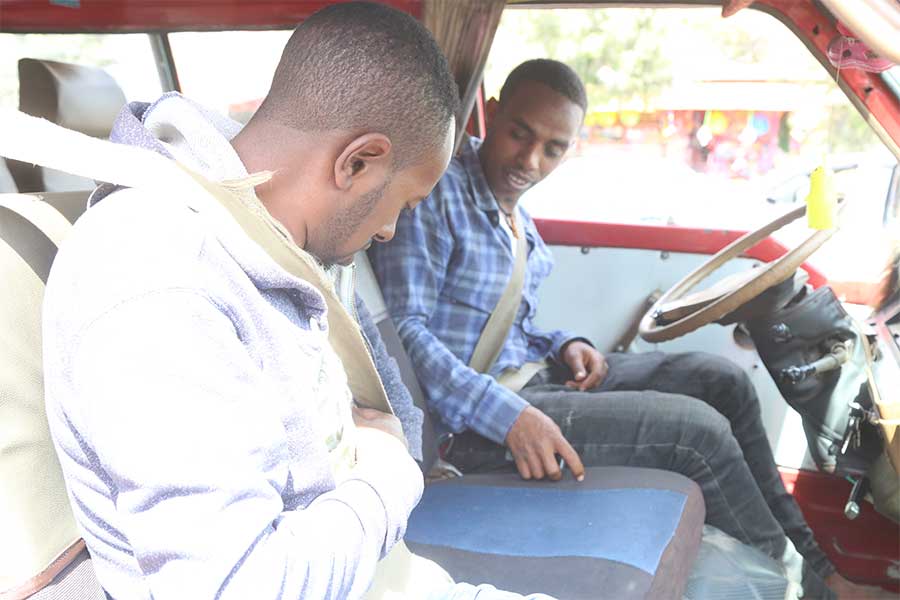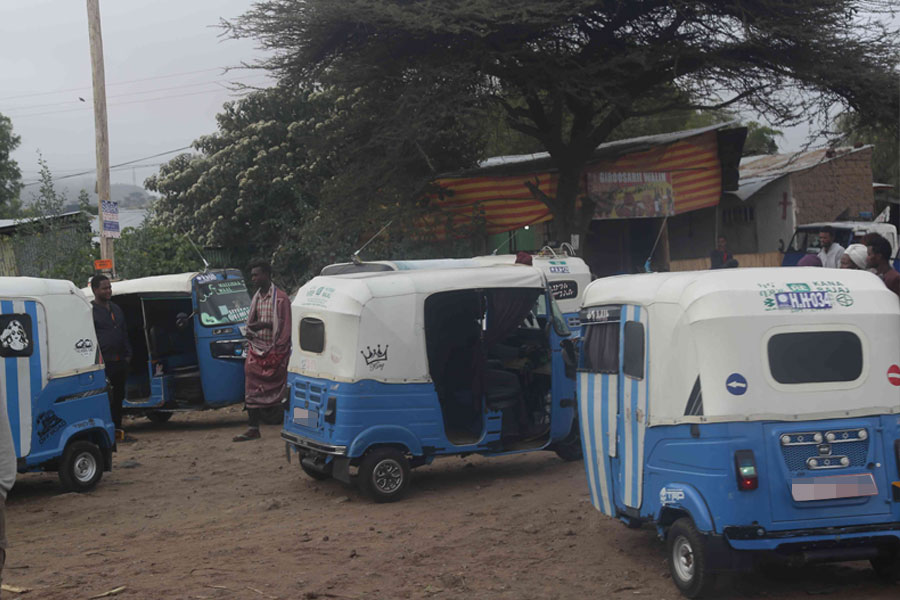
Fortune News | Aug 07,2021
Three dozen buses formerly belonging to Alliance Transport Services S.C. have been put up for auction by the state-owned Commercial Bank of Ethiopia (CBE). The eight-year-old company defaulted on its debt and pushed the CBE to foreclose on the buses, which have been idle for over a year and a half.
The company acquired the Chinese assembled SunLong brand buses, with the capacity to seat 34 passengers, in 2016. They are now up in the auction block for a floor price of 680,000 Br
Of the 125 buses Alliance formerly owned, 100 were acquired around five years ago at the cost of nine million dollars, 70pc of which was borrowed from the CBE. The remaining buses were bought with advanced capital from the company's 2,500 shareholders.
Alliance, whose founding CEO was Birrenesh Abay, eventually failed to service its debts, leading the CBE to take possession of 100 buses a year and a half ago. Another 25 buses, acquired with a loan secured from Dashen Bank, have already stopped working due to deterioration.
Adil Abdela, board chairperson of Alliance since its establishment, blames political and civil unrest in 2016 and 2017 in the suburbs of Addis Abeba and neighbouring areas, such as Burayu, Sululta, Lege Tafo and Sebeta, for his company's woes. His company had communicated its concerns to the CBE's management, requesting a grace period to service the loans. With the CBE management passing the issue to the Board, Alliance appealed to the prime minister's office for help.
“Our buses mostly used to connect Addis Abeba with the neighbouring cities," said Adil. "We had to stop during these times of protests. We then were forced to default on payments for some months, which the [Bank's] previous management could not accept.”
The bid will stay open until Tuesday.
The Bank has a different version of what transpired in the loan portfolio of Alliance Transport. Not only was the case not brought to the attention of the Board, but there was also no record of a request the management made to the CBE, says Yeabsira Kebede, corporate communications director at the CBE. Foreclosing on the buses was the final step the CBE took after Alliance had failed to respond to repeated notice the CBE, the Director told Fortune.
The company ran into trouble servicing its loans even before the protests cited by Adil as the root of Alliance's problems, according to Yeabsira.
This is not the first time the Bank has tried to sell off Alliance's buses—previous efforts hit a dead end after bidders offered below the threshold amount. The Bank has only been able to sell three buses that were auctioned off through a bid announced a year ago.
The buses could not attract buyers because they were not parked in "a good place initially," and exposed to damage before they were eventually moved to better-suited areas, Adil alleged.
“It's been a year and a half since the buses stopped working. They could be used for the service even though they are under CBE's administration,” Adil told Fortune.
The buses have been parked at CBE's vehicle storage facility in Qality.
The CBE could have used the buses to generate revenue and provide public service had it let them continue to be in service instead of letting them stand idly, says Birhanu Zeleke (PhD), a transport management expert teaching at Kotebe Metropolitan University. He sees the country’s transportation issues as a failure of an administrative system.
PUBLISHED ON
Jun 26,2021 [ VOL
22 , NO
1104]

Fortune News | Aug 07,2021

Editorial | Dec 11,2021

Featured | Jan 25,2020

My Opinion | Oct 20,2024

Fortune News | May 07,2022

Fortune News | Apr 13,2025

Radar | May 11,2019

Radar | Mar 27,2021

Fortune News | Dec 04,2022

Editorial | Apr 06,2024

Dec 22 , 2024 . By TIZITA SHEWAFERAW
Charged with transforming colossal state-owned enterprises into modern and competitiv...

Aug 18 , 2024 . By AKSAH ITALO
Although predictable Yonas Zerihun's job in the ride-hailing service is not immune to...

Jul 28 , 2024 . By TIZITA SHEWAFERAW
Unhabitual, perhaps too many, Samuel Gebreyohannes, 38, used to occasionally enjoy a couple of beers at breakfast. However, he recently swit...

Jul 13 , 2024 . By AKSAH ITALO
Investors who rely on tractors, trucks, and field vehicles for commuting, transporting commodities, and f...

Oct 25 , 2025
The regulatory machinery is on overdrive. In only two years, no fewer than 35 new pro...

Oct 18 , 2025
The political establishment, notably the ruling party and its top brass, has become p...

Oct 11 , 2025
Ladislas Farago, a roving Associated Press (AP) correspondent, arrived in Ethiopia in...

Oct 4 , 2025
Eyob Tekalegn (PhD) had been in the Governor's chair for only weeks when, on Septembe...